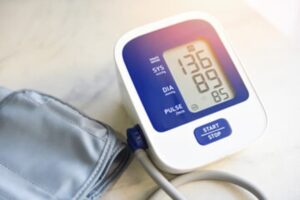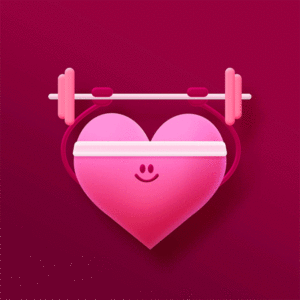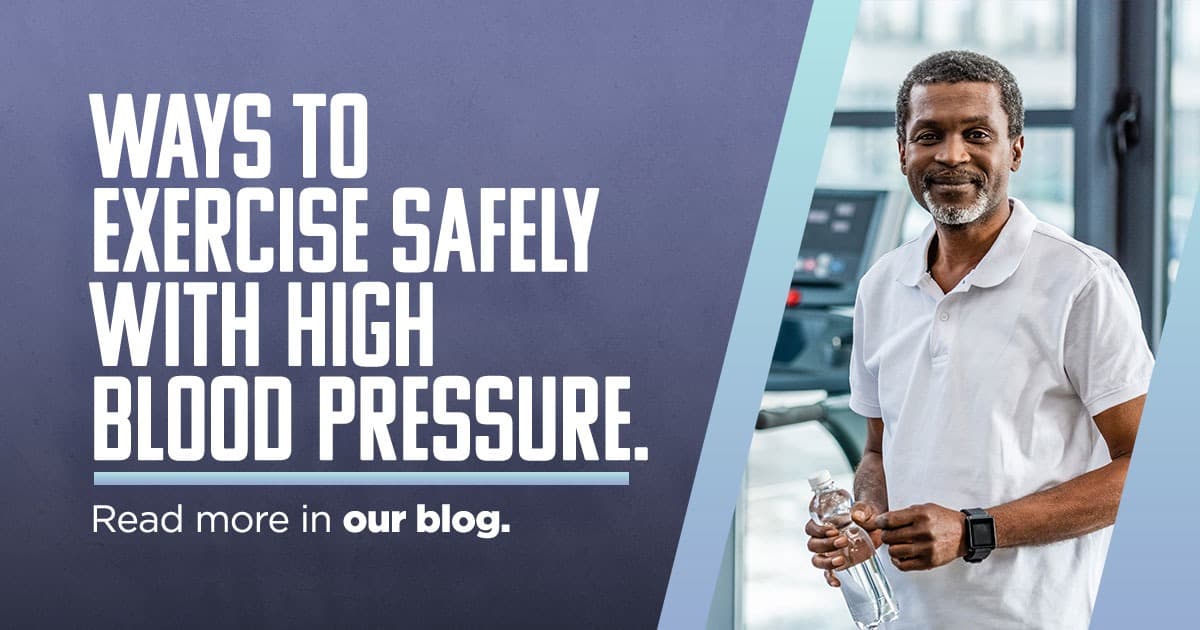Your heart is a muscle and needs to be exercised like any other in your body. If you have high blood pressure, exercising can help you manage it better. Keeping active also helps you manage your weight and other factors that can contribute to developing hypertension. If your doctor says you are ready for exercise, here are some smart ways to exercise safely with high blood pressure.
Exercise Frequency and Types
The goal is to get at least 150 minutes of moderate aerobic activity. So, you should aim for at least 30 minutes of aerobic activity most days of the week. If you’re starting, work slowly toward this goal. Another good idea is to break up your workout into three 10-minute sessions throughout the day.
Aerobic activity is any activity that increases your heart and breathing rates. A combination of aerobic and resistance weight training provides the most heart-healthy benefits, including:
- Basketball, tennis, soccer
- Bicycling
- Climbing stairs
- Dancing
- Gardening and yard work like mowing the lawn and raking leaves
- Jogging
- Swimming
- Walking
Exercising Safely
Remember to warm up before and cool down afterward to reduce the risk of injury while exercising. Start slowly, building up the intensity of your workouts gradually. Finding your target heart rate will help you identify your training target and monitor progress in your fitness goals. Click here to learn more about how you can find your target.

Use these steps below to check your heart rate during exercise once you know your target heart rate:
- Stop exercising briefly.
- Take your pulse for 15 seconds.
- Multiply this number by 4 to calculate your beats per minute.
- Here’s an example: If you’re getting 37 beats, multiply 37 times 4 to get 148 beats per minute.
Stop exercising and seek immediate medical care if you have any warning signs of possible heart problems, including:
- Tightness in the chest, neck, jaw, or arm pain
- Feeling dizzy or faint
- Severe shortness of breath
- An irregular heartbeat
Monitoring Your Blood Pressure and Clinical Research

Have your doctor check your blood pressure at each visit and use a home blood pressure monitor to track it regularly. When measuring your blood pressure at home, it’s best to do so at the same time every day. These regular readings can assist you, and your doctor in determining how effective your current exercise and treatment plans are.

Clinical research studies are a great way to prioritize your heart health while helping advance care options if you have high blood pressure. To learn more about our hypertension studies here at Synergy Healthcare, contact us at (941) 896-4948 or visit our website.
Sources:












